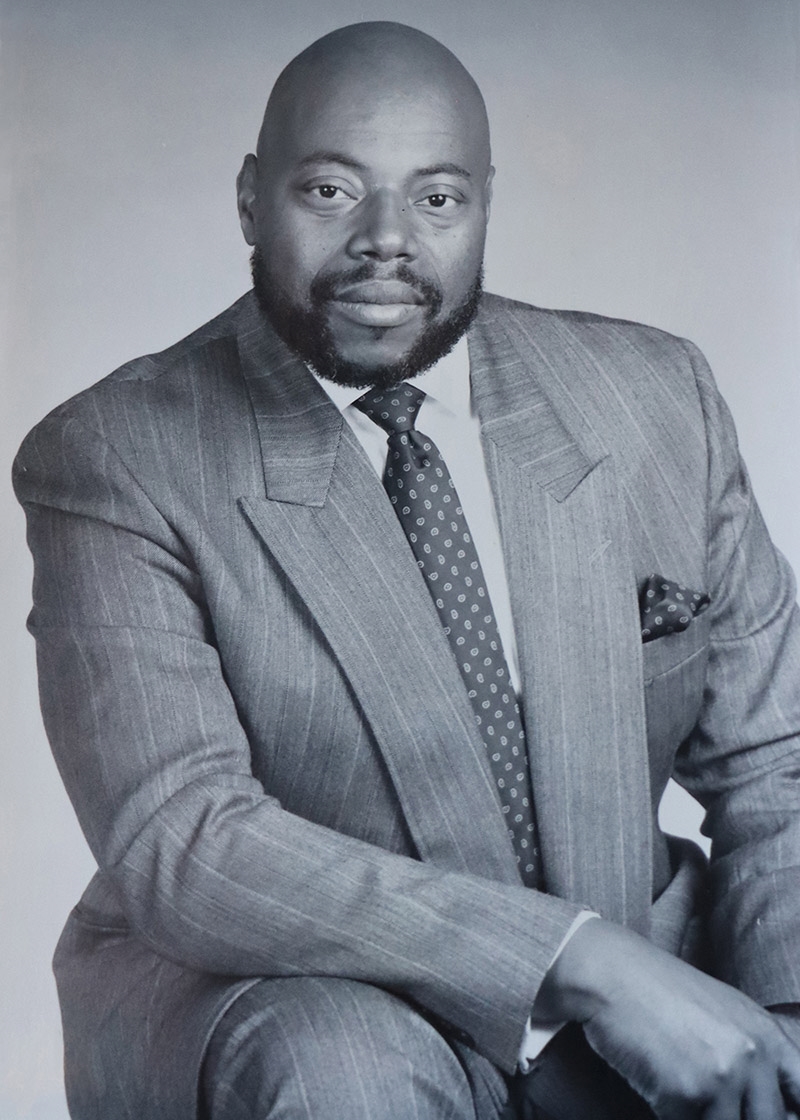
The Fay Jones School of Architecture and Design will honor the school's first African American graduate, Wallace "Wali" Caradine Jr., during a special event Thursday, March 10, on the U of A campus.
Members of the school and U of A community will gather with Caradine's family and friends to formally name the east entrance of Vol Walker Hall the Wallace Reed Caradine Memorial Entry in honor of Caradine. The public is invited to attend the ceremony, which will begin at 11 a.m.
The naming of this entrance in honor of Caradine is a signal of the school's commitment to celebrating and honoring a legacy of diversity in the school and at the U of A.
"Wali Caradine's legacy exemplifies the value of openness, accessibility and courage to us all, but perhaps most especially to all of our students," said Peter MacKeith, dean of the Fay Jones School. "Architecture and design both reflects and shapes our society and our culture. It is therefore necessary for architecture and design education to be open, accessible and diverse in its participants and in its approaches, which also brings immeasurable creative benefits. To name a portal of the Fay Jones School in honor of Wali Caradine is to tangibly embody that openness, that accessibility and that diversity so necessary for a successful design education. We are grateful to Dr. Delbra Caradine, the Caradine family and the entire community gathered around Wali Caradine for their generosity, their counsel and their good will."
"I'm delighted that the Fay Jones School has chosen to honor Wali Caradine in this way," said Charles Robinson, interim chancellor. "It seems right to me that the entrance to the school will bear his name, because he was in fact a person who worked diligently to open doors for others and who made a profound difference in his profession, his community and the state of Arkansas."
"On behalf of the Wallace Reed Caradine family and friends, I would like to express our extreme gratitude and appreciation for the Memorial Entry named in his honor, located at Vol Walker Hall, the home of the Fay Jones School of Architecture and Design at the University of Arkansas campus in Fayetteville," said Dexter Doyne, a mentee and friend of Caradine's. "From these halls of education, Wali emerged as a successful entrepreneur, mentor, husband and father who left an indelible impression upon everyone he met. If he were here with us, I am sure he would graciously accept this historic accolade while encouraging others to 'Think Big and Follow Their Dreams.'"
Caradine, who was born in 1949 and raised in West Memphis, came to the U of A campus in Fayetteville to study architecture. As the fourth of seven children and the eldest boy, he was the only one in his family to attend college. He graduated in 1974 with a Bachelor of Architecture degree. After additional training at the Construction Management Institute in Dallas, he went on to make contributions to both the design and construction industries.
Caradine began his career as a designer at Pat Kelley Magruder Architects in West Memphis, before eventually founding Design and Construction Associates in 1978, which became one of the largest minority-owned contracting firms in Arkansas. He returned to his first love of architecture and design in the mid-1990s and partnered with Ron Bene Woods to form Woods Caradine Architects, a relationship that lasted more than a decade. Their notable projects included two academic centers for the University of Arkansas at Pine Bluff and the Statehouse Convention Center Expansion in Little Rock, and serving as associate architects for the William J. Clinton Presidential Center in Little Rock.
In 2007, he formed Caradine & Company, where he practiced until his retirement in 2017.
Caradine also served as a mentor to many minority building contractors in Central Arkansas, including the founding in 1986 of the Arkansas Chapter of the National Association of Minority Contractors. In 1998, he joined the John G. Williams Fellowship in the Fay Jones School, a group that honors the founder of the architecture program at the university, who was a dear friend and professor of Caradine's. Caradine also served as a member of the university's Central Arkansas Advisory Committee from 2009-13.
Caradine passed away July 10, 2017, in Little Rock, at age 68. He is survived by his wife, Dr. Delbra Caradine; a son, Reed Caradine; and a daughter, Ashley Caradine.
Topics
Contacts
Michelle Parks, director of communications
Fay Jones School of Architecture and Design
479-575-4704,